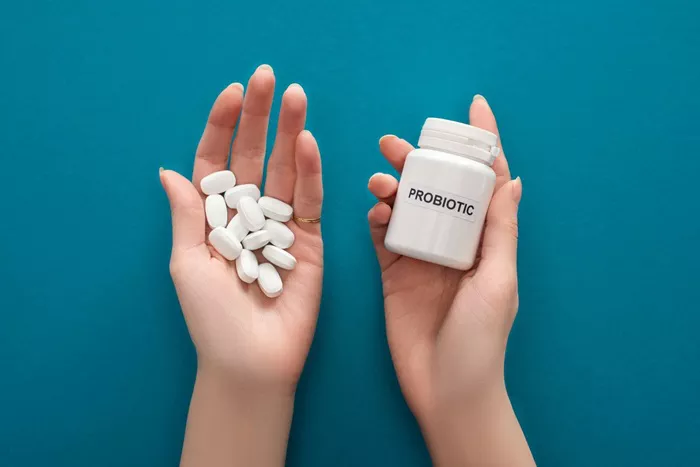As men age, their nutritional needs change significantly. The body becomes less efficient at absorbing and utilizing essential vitamins, while lifestyle factors and medications often create new nutritional deficiencies. For elderly men, proper vitamin supplementation isn’t just about maintaining health—it’s about preserving independence, cognitive function, and quality of life.
This evidence-based guide examines the most important vitamins for men over 65, combining the latest scientific research with decades of clinical experience. We’ll explore why each vitamin matters, how much is needed, the best food sources, and what to look for in quality supplements. Whether you’re looking to boost energy, support heart health, or maintain mental sharpness, this guide will help you make informed decisions about your nutritional needs.
Why Elderly Men Have Unique Vitamin Needs
Several age-related changes make proper vitamin intake particularly important for older men:
- Decreased stomach acid production reduces absorption of vitamin B12, calcium, and magnesium.
- Reduced kidney function affects vitamin D activation and electrolyte balance.
- Medication use increases, with many common drugs depleting essential nutrients.
- Appetite often decreases, leading to potential nutritional gaps.
- Skin becomes less efficient at producing vitamin D from sunlight.
- Chronic inflammation increases, raising antioxidant requirements.
Understanding these changes helps explain why even men with healthy diets may need targeted vitamin supplementation as they age.
The 3 Most Important Vitamins for Elderly Men
Vitamin D
Why it’s critical:
- Supports bone health and calcium absorption
- Reduces risk of falls and fractures
- Modulates immune function
- May protect against certain cancers
Recommended daily intake:
- 2000-4000 IU for most elderly men
- Higher doses may be needed for those with deficiencies
Best food sources:
- Fatty fish (salmon, mackerel)
- Fortified dairy products
- Egg yolks
Vitamin B12
Why it’s critical:
- Essential for nerve function and red blood cell production
- Deficiency can cause fatigue, memory problems, and neuropathy
- Absorption decreases significantly with age
Recommended daily intake:
- 1000 mcg (oral) or injections if deficient
- Methylcobalamin form is best absorbed
Best food sources:
- Meat, fish, poultry
- Fortified cereals
- Nutritional yeast
Special Considerations for Elderly Men
Heart Health
Key vitamins:
- Vitamin K2 (directs calcium away from arteries)
- Omega-3 fatty acids (reduce inflammation)
- Magnesium (supports normal heart rhythm)
Brain Function
Key vitamins:
- B vitamins (especially B6, B9, B12)
- Vitamin E (antioxidant protection)
- Vitamin D (supports cognitive health)
Bone Health
Key vitamins:
- Vitamin D
- Vitamin K2
- Calcium (in proper balance with other nutrients)
How to Choose Quality Vitamin Supplements
What to Look For:
- Bioavailable forms (methylcobalamin vs cyanocobalamin for B12)
- Proper dosages (not megadoses unless medically indicated)
- Third-party testing (USP, NSF, or ConsumerLab certification)
- No unnecessary additives (artificial colors, excessive fillers)
What to Avoid:
- Proprietary blends (that hide ingredient amounts)
- Excessive iron (most elderly men don’t need supplemental iron)
- Vitamin A in high doses (can be toxic)
- Cheap, poorly absorbed forms (like magnesium oxide)
Potential Medication Interactions
Many common medications affect vitamin needs:
- Proton pump inhibitors (reduce B12, magnesium absorption)
- Diuretics (increase loss of B vitamins and magnesium)
- Blood thinners (interact with vitamin K)
- Cholesterol drugs (may deplete CoQ10)
Always consult your doctor before starting new supplements if you take medications.
The Role of Diet
While supplements are important, they should complement—not replace—a nutrient-rich diet. Focus on:
- Colorful fruits and vegetables (variety ensures phytonutrient intake)
- Quality proteins (fish, lean meats, legumes)
- Healthy fats (olive oil, nuts, avocados)
- Whole grains (fiber supports gut health)
Sample Daily Vitamin Regimen
Morning:
- Multivitamin formulated for seniors
- Vitamin D3 (2000 IU)
- Omega-3 supplement
With Meals:
- Vitamin C (food-based form)
- Magnesium glycinate
Evening:
- Probiotic
- Vitamin K2 (if not in multivitamin)
When to Get Blood Tests
Consider testing levels of:
- Vitamin D
- Vitamin B12
- Folate
- Magnesium
- Omega-3 index
Testing helps personalize your supplement regimen and avoid deficiencies or excesses.
Final Recommendations
Best Overall Multivitamin:
Thorne Research Men’s Multi 50+
- Contains methylated B vitamins
- Includes vitamin K2
- No unnecessary additives
Best for Heart Health:
Life Extension Two-Per-Day
- Includes heart-healthy nutrients
- Additional antioxidants
- Good value
Best Budget Option:
Nature Made Multi for Him 50+
- Affordable
- Contains key nutrients
- Widely available
Conclusion
Proper vitamin intake becomes increasingly important for men as they age. The best approach combines:
- Targeted supplementation based on individual needs
- A nutrient-dense diet rich in whole foods
- Regular monitoring of vitamin levels
- Adjustments for medications and health conditions
By focusing on the vitamins that matter most for elderly men—particularly D, B12, K2, and proper antioxidants—you can support better health, mobility, and cognitive function in your later years.
Remember that vitamins work best as part of a comprehensive health plan that includes regular exercise, stress management, and social connection. Start with a quality multivitamin, consider additional supplements based on your specific needs, and consult with your healthcare provider to create a personalized plan that helps you thrive at any age.
With the right nutritional support, your later years can be some of your healthiest and most fulfilling. The key is addressing nutritional needs proactively rather than waiting for deficiencies to develop. By taking action today, you’re investing in better health for years to come.
Related topics:
- 3 Plan for Weight Loss for Male Vegetarians
- What Is the Best Vitamin Supplement for Women?
- 7 Best Vitamins For A Man In His 30s


